I’ve now read the incredible book, “The Art of Resilience” by Ross Edgely. For those unfamiliar with him, in 2018, he spent 2018 days at sea and became the first person to swim the entire perimeter of Great Britain, breaking several world records in the process. His book, which is both an account of the swim and outlines his philosophy of Stoic Sport Science, speaks to me personally on many levels.
One of the things I liked is his account of a sports scientist’s assessment of his body suitability to attempt to swim around Britain. Ross is not built like a swimmer. While incredibly fit and muscular, he’s short and stocky, built much more like a wrestler. He was told by scientists that if he embarked on this swim he would “sink like a stone”, partially on account of his “very big and dense cranium.” He was also told that his hips were “fat, chunky hips, suitable for child bearing’ which means that his fat thighs might possibly keep him afloat, much like a duck’s bum.”
He went out and swam around Britain anyway.
I liked this assessment and his humour in sharing it and it strikes a chord with me personally, having grappled with some body image issues of my own. More on that at another time.
His book is a true inspiration to thousands of people. It got me thinking about my own back story, one that I’ve recently reflected upon a lot, having completed a huge personal challenge of swimming the entire length of New Zealand’s Clutha River in February 2020 and then spent 7 weeks in lockdown due to covid-19.
Reflections of an Extremely Unnatural Athlete
I was always a terrible athlete. I always loved running around and being active, but despite my best efforts growing up, I could never handle a ball. I tried all the usual sports in Canada – basketball, baseball, soccer and hockey. Anything that involves aiming a ball (or a puck) to a target, I have no chance of succeeding in, despite hard work. With the exception of baseball, which I found incredibly boring, I do actually enjoy team sports such as basketball, soccer and hockey, I just can’t play them without causing severe detriment to the team.
I began swimming towards the end of my grade 8 year, at age 13. I’d spent most of my grade 8 year being very uncharacteristically inactive after failing miserably at grade 7 basketball. Despite hard work, I wasn’t permitted to play anything but the bench. To be fair to the coach, I wasn’t any good, but I’d thought at age 12, participation was more important than winning. I recall a tournament where I asked the coach if I could play the final 3 minutes of a game when we were up by 30 points – a lead that even I couldn’t possibly destroy in 3 minutes. I was snarled at and told to go back to the bench. My coach seemed convinced that the very future of the NBA rested on the shoulders of 5 or 6 of the players and in my estimation, was living vicariously through them.
Becoming a swimmer
After being defeated by basketball, for about 8 or 9 months of being inactive and eating a lot of junk food, I looked at at myself in the mirror one day in April and realised that if I didn’t do something, I’d turn into my father. He’d had his first heart attack three years earlier, while in his early forties. That wasn’t a fate I aspired to.
I joined the community swim team that afternoon. Previously, while going through the Canadian Red Cross Learn to Swim program, I’d failed at all the levels multiple times. My stroke ridiculously uncoordinated, I couldn’t make it a length of the pool without pausing and I was no better at swimming than I was at baseball – a sport where I couldn’t hit, throw or catch a ball.
What I liked about being on the swim team, however, was that the 90 minute practices, you were actually swimming the whole time, unlike in swimming lessons where you only were actually swimming 10-15 mins out of the hour.
What I also liked was that when competition day came, the coach never said, “You can’t race because you suck.” Racing was permitted regardless of speed, and each swimmer, from the slowest to the fastest was able to race in 5- 7 events per competition. That and the fact that I simply love the water, swimming became the perfect sport for me.
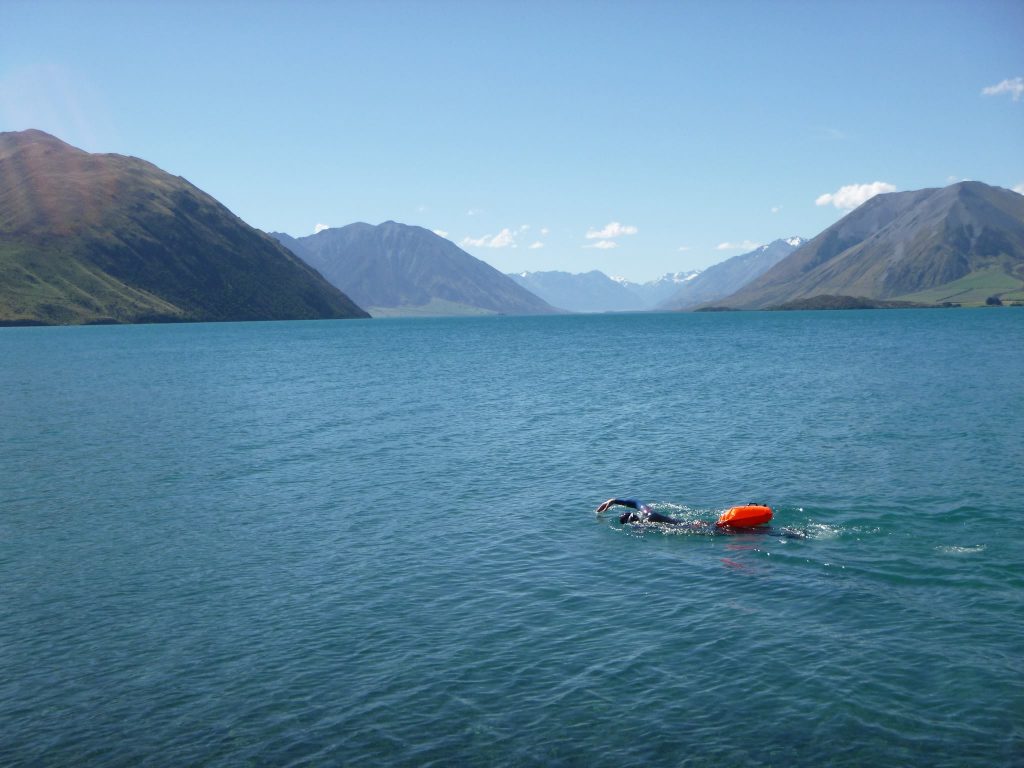
So with a joy in what I was doing, being permitted to race and some old fashioned bull headed determination, I trained myself to become a reasonably good swimmer. I was not, however, the strongest or the fastest on any of the teams I would ever be on. After deciding to do triathlons at age 14, I eventually trained myself to be a decent open water swimmer. One of the few athletic talents I seem to innately have was my ability to swim in a straight line in the open water, a skill lacking in many pool swimmers once they get outside the lane ropes. By the age of 17, I was regularly coming out of the water first or in the top three in a triathlon.
From Competition to Challenging Adventures
Upon self reflection, I realised that over the past several years as I entered my 40’s, my interests have shifted from triathlon and marathon swimming competition, to having mostly self organised challenging adventures in beautiful environments, some of which are swimming, some cycling, some running, and in the spirit of triathlon, I often combine all three sports in one noncompetitive expedition.
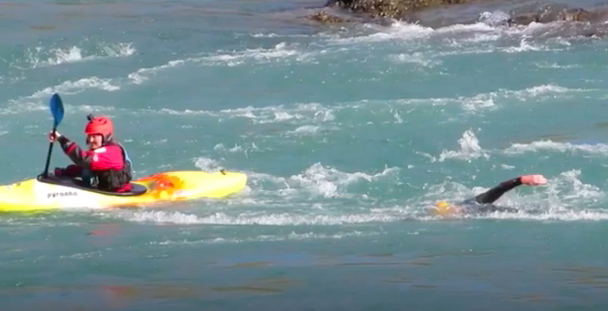
Having completed a swim down the Clutha River, something that nobody else had ever done, and now reading Ross’s book, I have been thinking about my own aspirations in marathon swimming, cycle touring and long distance mountain running. Part of the purpose of blogging is to do just that, as was making a documentary of my Clutha River Swim over lockdown.
At first, the prospect of swimming around Britain over 157 days really speaks to my soul. I’ve had 3 – 6 week cycling tours, 3 week long hikes in the Himalayas and Mongolia,, completed Ironman triathlons, a 4 day run across the Larapinta trail in the Australian outback, and in the summer of 2020 before the world went mad, I became the first person to do a marathon swim down the lower Pelorus River, the lower Buller River and the full length of the Clutha River. The Clutha took 4.5 days and was my most satisfying challenge to date.
But swimming for 157 days around Britain is a whole other beast. Nothing in my experience compares to that. And I’m not going to lie. The idea of swimming the perimeter of New Zealand popped into my mind on a few occasions since hearing about the Great British Swim.
Having immersed myself in the endurance sport world for 30 years, it’s obvious that there’s a shift occurring within the endurance sport community. While conventional endurance sport is still huge, the rise of ultra marathoning, ultra distance triathlons and a huge interest in Fastest Known Times (FKTs) on various long distance – very often cross state or cross country trails and now swims like the Amazon River Swim by Martin Strel or the Great British Swim by Ross Edgely has struck a chord with untold numbers of athletes and adventurers.
Upon self reflection, however, I realised that I prefer challenges that take 3 – 6 days to do. I’ve got a job that I love as a chiropractor and I don’t want to give that up. Nor can I afford to give it up. I have no sponsors knocking at my door and while Blueseventy NZ provided me with two Helix wetsuits to complete the Clutha, getting a few wetsuits probably won’t pay my rent, or my mortgage when my house will finally built later this year. If I were to decide at some future time to do an expedition that took several months, it would likely be cycle touring, as it is a fantastic way to see the world, experience cultures, a great physical challenge, can be done inexpensively and you can stop whenever you want to enjoy the scenery and there is no rule to keep going or sponsors to please. Most importantly, for an expedition that long, it’s an adventure that my wife can enjoy with me, as she is also into cycle touring, but is not a swimmer or a runner. So for the time being, with the desire for a balanced life, a job that I enjoy, other interests outside of endurance sport, the financial inability to take months off work, it’s unlikely that I’ll swim the perimeter of New Zealand or anything equivalent.
Comparing Yourself to Others
I’m in no way encouraging anyone to steer clear of ultra long distance challenges, fastest known times or any other extreme challenge that can be dreamed up. If it’s what someone truly wants and they have the means and the tenacity to make it happen, I will draw inspiration from those people, read their books or watch their documentary.
What I caution against, however, is the obsessive need by many to compare themselves to others, fuelled worse than ever by social media, and feeling inferior about their marathon, their swim across a lake, their workout in the gym, their inability to do an arm balance in Yoga or being dropped by friends on the bike while cycling up into the hills. If you’ve just swam across a 10km lake, then go on social media and hear about someone who just swam across a 50km stretch of ocean, it’s easy to go from feeling really satisfied to very inferior in the space of a minute.
I’m certainly not immune to comparing myself to others. I’ve thought about this quite a lot after completing the Clutha. Especially because I shared the adventure on social media, and while most engagement was overwhelmingly positive, the odd commenter would say, “It’s not as impressive as swimming around Britain” or “I’d be impressed if he’d swam upstream.”
It’s easy to ignore internet commenters once you decide that you’re going to do so, or its easy to get sucked into that dark world. I decided many years ago to only use social media to use as a tool to help organise and share adventures, keep in contact with actual friends and make the odd bad joke with my annoying love of satirical humour and ignore the overwhelming number of internet commenters who seem to have an opinion and be an expert on everything.
What isn’t easy to ignore, even in the absence of social media, is the tendency to compare yourself to others.
First, before saying anything else, I’ve talked Ross Edgely’s incredible swim. While I haven’t ever met him, I’ve listened to several podcasts of his and I’m now reading his book. What I like about him, despite the fact that he’s completed the most epic swim in history, he comes across as a very humble person. My impression is that he’d give encouragement to anyone, ranging from someone who wanted to attempt to break his record for swimming around Britain faster to someone who wanted to get off the couch and complete five laps of the pool. So, in no way do I want to come across as discouraging attempting an epic adventure that might not have ever been done before.
What I want to encourage is true self reflection, and find out what you truly want to do and why you want to do it. If going for a FKT on a thousand kilometre trail or swimming the perimeter of your country is what you truly want to do for yourself, go for it. Having read quite a few books on the subject of FKTs, round the world cycle tours and other similar adventures, a recurring theme that comes up from the adventurer is that at some point, they wish they could have spent more time engaging with the locals or spending more time in the some of the beautiful places than chasing the record. So I’d encourage reflection prior to such an attempt to determine if a fast time is more valuable to you than enjoying the sights and the people along the way.
But I want to speak to some of the mere mortals who are also in the endurance sport community. Despite hard, unpaid, and often expensive work, there’s not a huge chance that you might get a FKT or have the means of taking 6 months off work to swim, run or ride the length of your country. I’m not saying give up and don’t try – nothing of the sort. If I’ve learned anything from people’s stories is that almost everything that has ever been attempted in sport or adventure was first mocked as being impossible.
What I’m saying is find out what kind of adventure you might actually want to do, one that is challenging and will bring you satisfaction. If that’s a 3 day back country mountain bike trip, a big weekend swim across a lake or down a river, a mountain climb, a back country marathon or a 3 week cycle tour in a place you’ve always wanted to see, find the joy and satisfaction in it and don’t worry if it won’t make it into the record books.
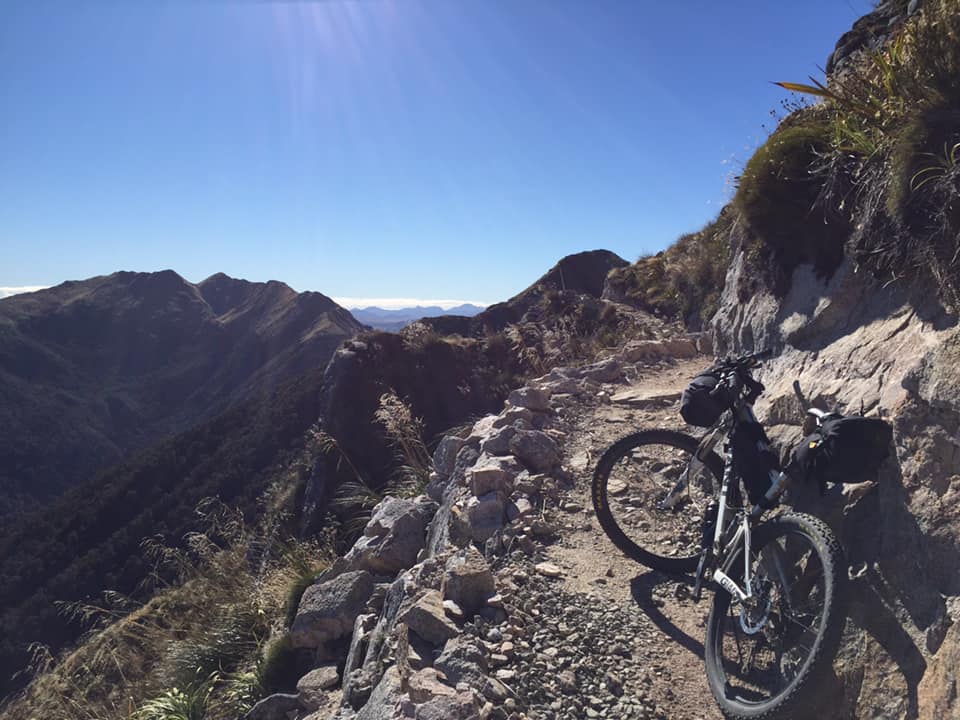
Whether you’re able to pull it off, or maybe something goes wrong, as it often does in nature – maybe the weather turns against you, a family emergency happens during your effort, an injury or you simply overestimated your ability – find the satisfaction in that adventure, and don’t worry that someone has gone further or faster than you. For most of us, myself very much included, there’s always someone faster or stronger. Even if you’re in that elite class of athletes for a while, sooner or later someone will come along and topple you and take over being the fastest or strongest.
Maybe you want to swim across the lake near your home town. Maybe you want to ride your bike for 3 hours in the hills. Maybe you want to run across your state or province. Maybe a cross country event is within your means. But don’t worry if you’ll never be the fastest at it. Maybe a habit of doing such adventures leads you on a road that might eventually include a 6 month expedition. And maybe it won’t. I’ve come to believe that waiting for that ‘epic’ journey takes away satisfaction and joy from those weekend and week long outings.
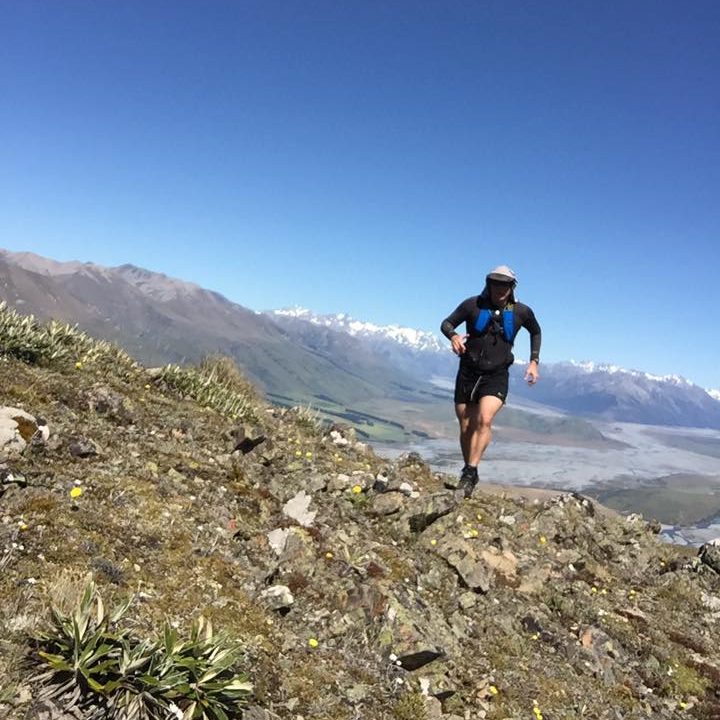
I’d also encourage against thinking, “I still went better than those people who didn’t get off the couch.” While true, this is another way of comparing yourself to others and I’d argue that these feelings aren’t a sign of true satisfaction in what you’ve accomplished.
Enjoy the Journey
I’d encourage doing an adventure and soaking up as much enjoyment from it as possible. From the physical and mental strength required, any cultural experience you may have enroute, the camaraderie of fellow adventurers and supporters and the feeling of freedom from leaving the creature comforts of home behind for a while, follow your heart, do what you love. And enjoy the self reflection that often comes after a great adventure out in the wild.
It is in this sentiment that I have begun planning another multi day swimming expedition. The Banks Peninsula, near my home in Christchurch, New Zealand is a beautiful stretch of rugged coastline with beautiful bays. From the small beachside suburb of Sumner, to the tourist town of Akaroa, I intend to swim the approximate 80 kilometres over three days. I originally hoped to do it in the 2020 – 2021 summer swim season. However with the pandemic still going, lockdowns possible at any time, having a house built and plans to do another multi day swim in Kiwi fiordlands in 2021, I decided the cost and risk was too high to spend money on it this season. So I hope to do it in 2022.
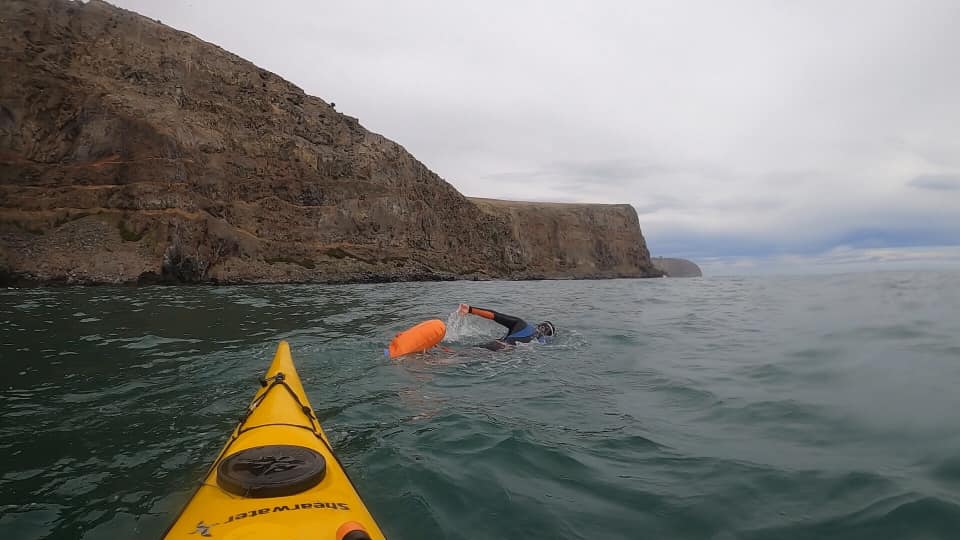
It’s not even remotely close to being as long as swimming around Britain.
But it’s never been done, it’s what I have the physical and financial means to do it, and more importantly, it’s what I truly want to do. It’ll be an epic swim attempt, and whether it goes well or not, whether I can complete the swim in the time that I have available from work or if bad weather forces it to be called off or cut short, to me, it’s a journey that I want to have, to push the limits and also maintain a balanced life afterwards.
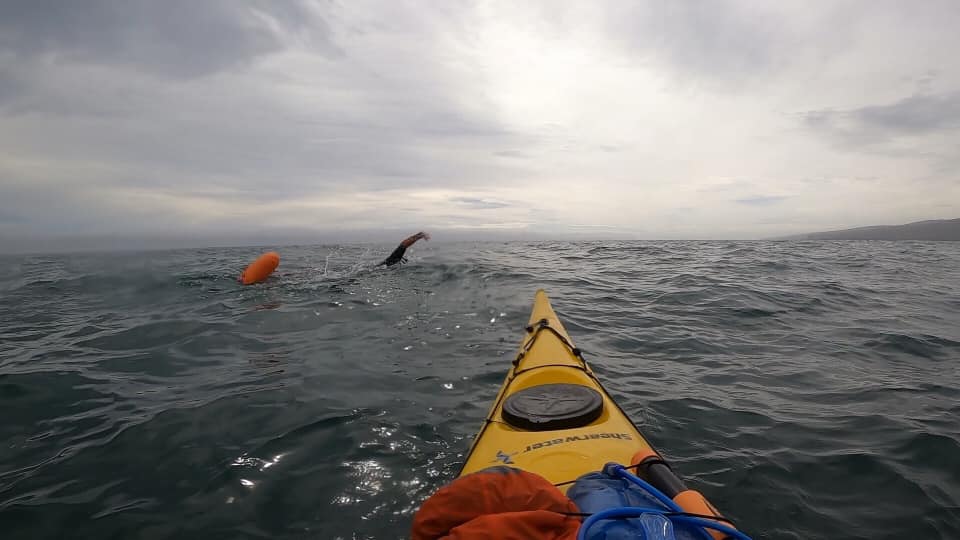
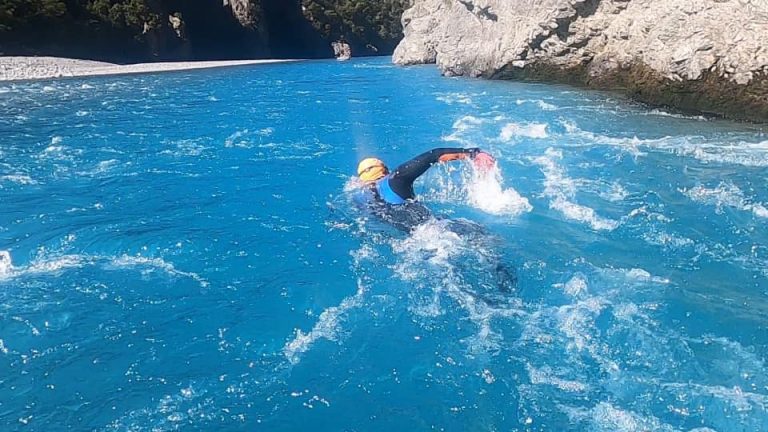
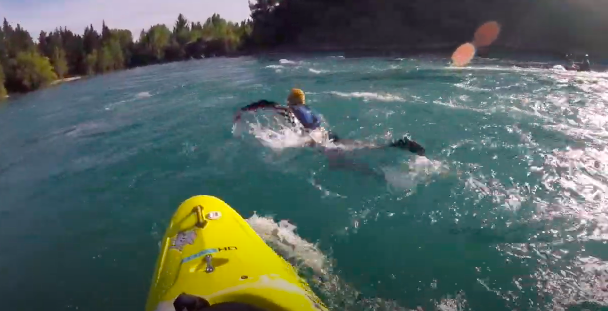
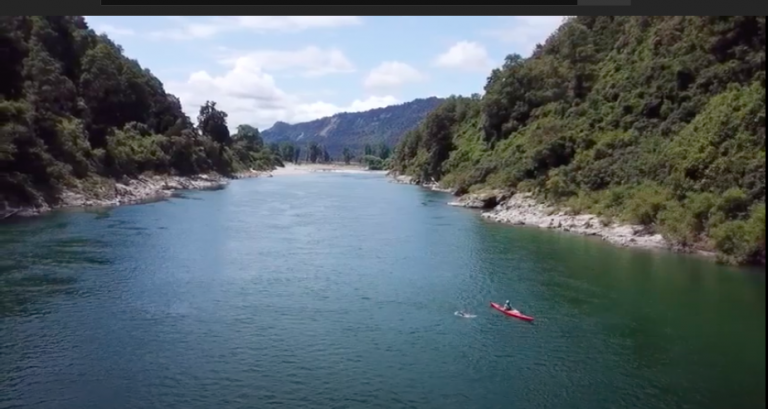
Rob, you’re very level-headed about all this. Do what you love to do and enjoy the swim.
What a great read, very inspiring and well balanced Rob. Keep up the writing and video clips.
Keep working ,great job!